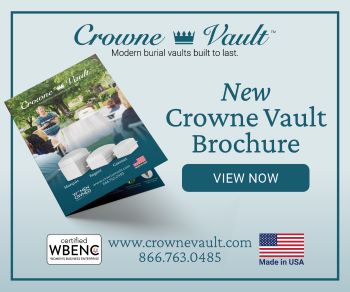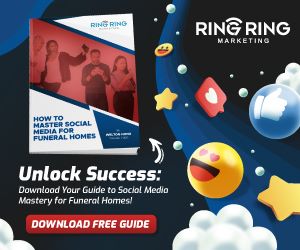Actuaries become “Death Care” allies

Breaking the taboo of “End-of-Life” planning can only be a help for funeral services and other death care companies. Funeral directors, funeral homes, and cemeteries with progressive sales force techniques have known for a long time that getting one to talk about their mortality is what gets those consumers to eventually enter into preneed types of arrangements.
However, if you cannot get potential consumer clients to talk about their eventual mortality it is really difficult to get them to plan for it.
This article from The Actuary magazine entitled “The Sense of an Ending” explains, among other things that “Mortality trends are inherently dynamic and predicting them is tricky, especially in the face of unprecedented incidents such as the Covid pandemic. During that event, insurers adopted pandemic risk models as the counterpart of catastrophe models in the general insurance world. . . “
The article goes on to say, “Better pandemic risk modelling could lead to more accurate reserves (for insurance companies) in such situations.”
Those thoughts bring us to a point where not only do death care professionals want to get preneed insurance into the hands of their potential future clientele, but so do the insurance companies . . . simply in order to have more policies that tend to lead to more reserves.
The article then points out that “the most significant advantage of breaking the taboo around death is the promotion of end-of-life planning. Emphasising the financial benefits and peace of mind that come with proper planning can encourage people to address these crucial matters in a proactive manner.”
The article finishes by stating (the emphasis is mine), “The actuarial profession is undergoing a transformative phase, characterised by an increased willingness among the public to confront mortality. By embracing diversity, leveraging technology, considering behavioural economics and factoring in environmental and ethical considerations, actuaries are revolutionising life modelling assumptions. That will not only lead to more accurate predictions but also ensure that insurance products are tailored to meet the evolving needs of a diverse and dynamic global population.”

Tom Anderson
Funeral Director Daily
Funeral Director Daily take: I think we have some great preneed companies in America. . . . .However, I think that maybe we don’t think outside the box or look into how these companies can grow even better in conjunction with helping America’s funeral homes prosper. . . .
From my point of view, preneed is not only for the 55-and over generation, nor should it simply be for the cost of death care services. I think the pandemic has changed all of that thinking and has not only made the over 55 age group think about their mortality, but has created a whole new set of younger people thinking about their mortality.
There is a company in Great Britain that I have written about before, Dead Happy. Dead Happy is a life insurance company that helps individuals fund their “Death Wish”. . . . . and, what might that “Death Wish” be?
That “Death Wish” could fund one’s funeral costs or the costs of a celebration of life upon one’s death. But, it could also additionally fund something that someone feels is significant in their life and wants to give a financial boost to — such as a donation to your favorite charity, or some future tuition money for a niece or nephew. The list is endless. . . .
What funding of a “Death Wish” does do is create a larger death benefit that, more than likely, increases the premium of the policy which in turn allows for more profits for the insurer over time. . . and also for the funeral home preneed sales representative. In essence, those revenues could greatly enhance a funeral home’s bottom line.
How can this be done? . . . . One thought is turning to the ages between 30 and 55 — those that have dreams of enhancing others lives but cannot afford to do so with their present income. Maybe a 10-year payment term on a whole-life policy could provide this “Death Wish” charity opportunity to someone who does not see that type of philanthropy possible in their immediate future.
I don’t know — this is outside the box, but I think young people have been changed because of the pandemic experience. I think they realize mortality is eventual and many might be open to this type of “End-of-Life” planning at earlier and earlier ages.
The actuaries tell us that there is an increased willingness from the public to confront mortality and products need to be tailored to meet the evolving needs of our population. . . . .Who better than funeral homes and their insurance partners to deliver this possiblity to the consumer public?
More news from the world of Death Care:
- Portland police asking about stolent cemetery statue. Video news story. KGW Channel 8 – NBC Portland (OR)
- Servant of the Dead — the only undertaker in the Cook Islands. The Fiji Times
- Astood Cemetery and Crematorium wins ICCM Charter Gold. Worcester News (Great Britain)
Enter your e-mail below to join the 3,413 others who receive Funeral Director Daily articles daily:
“A servant’s attitude guided by Christ leads to a significant life”





















